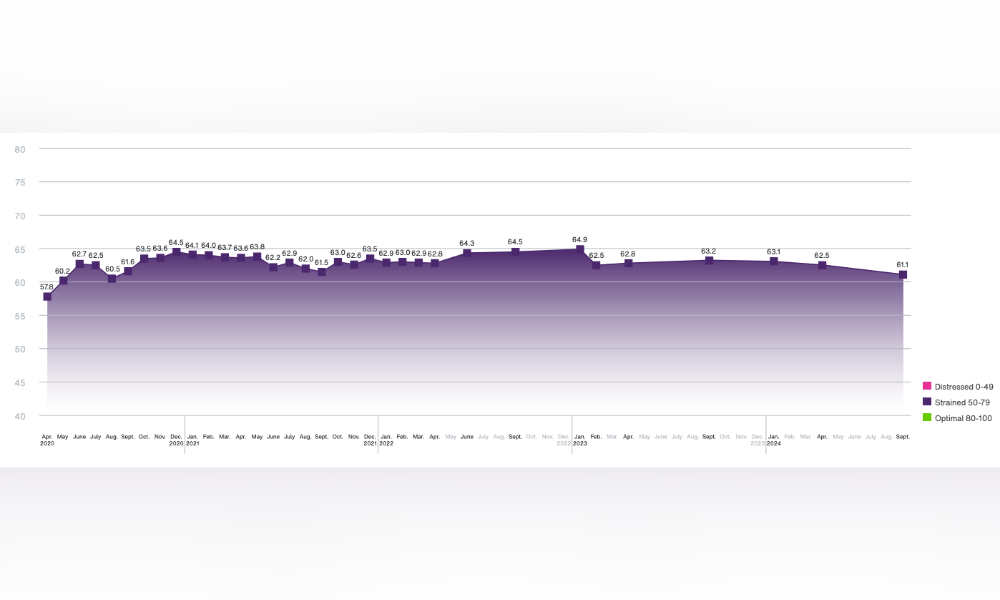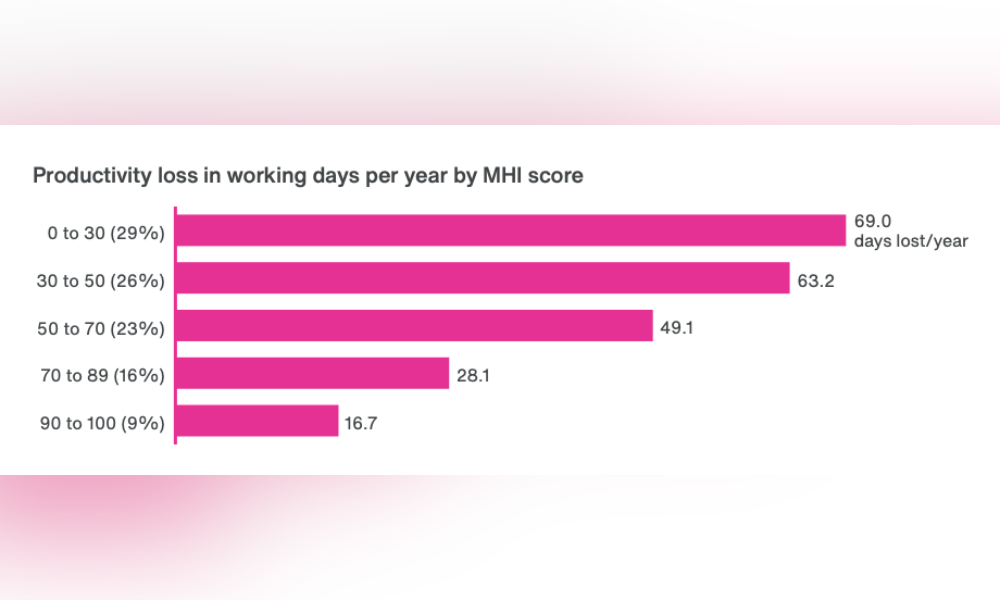
Businesses losing up to 69 workdays of productivity annually per employee due to poor mental health: report

The mental health of Australian employees plunged to its lowest point in four years in September 2024.
The report, which examines the mental health of employees across multiple countries, found that Australians' mental health score dropped to 61.1 in September 2024, its lowest since August 2020.
"With mental health scores at an all-time low nationwide, it's essential to understand the significant impact on productivity. A workforce that isn't thriving can't drive a business to its full potential," said Paula Allen, Global Leader of Research & Client Insights at TELUS Health, in a statement.

According to the TELUS Mental Health Index, workers with lower mental health scores suffer from greater productivity loss.
In the case of Australia, businesses are losing up to 69 workdays of productivity annually per employee due to poor mental health.

Meanwhile, the report highlighted that younger workers and those without savings face the greatest risks to their mental health.
Anxiety and isolation were identified as the primary mental health challenges for Australian workers, with younger employees, particularly those under 40, more than twice as likely to report anxiety and depression compared to those over 50.
In addition to demographic factors, the Index also revealed a connection between financial stability and mental health.
Workers without emergency savings were found to be three times more likely to experience anxiety and depression, with their mental health scores 30 points lower than those with savings.
"The mental health challenges facing workers in Australia, particularly among younger employees and those without financial safety nets, are concerning. It's clear that isolation, anxiety and economic pressures are taking a toll," said Jamie MacLennan, Senior Vice-President and Managing Director of APAC at TELUS Health, in a statement.
However, the report also points to opportunities for employers to make a significant difference. It found that workers who rated their employer's physical wellbeing support as excellent only lose 26.3 working days a year.
Workers who also rate their employer's mental health support as excellent only lost 28.4 working days per year in productivity, according to the report.
"As employees increasingly look to their employers for comprehensive support — whether financial, physical, or mental—all of which are essential to their overall wellbeing - the opportunity for employers to make a meaningful impact with the services they offer, increases," Allen said.
To boost mental health, MacLennan suggested investment in programmes that tackle all aspects of wellbeing in the workplace.
"By investing in robust programs addressing physical, mental, as well as financial wellbeing, and fostering a supportive work environment, businesses can not only improve their employees' mental health but also substantially boost productivity and overall organisational performance," MacLennan said.